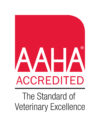Library
-
Muscle tears are direct or indirect traumatic injuries that cause damage to muscle tissue. The most common cause is an indirect injury or strain caused by overstretching during athletic activities, such as running or jumping. This handout discusses muscle tears in cats and reviews the causes of these injuries, the clinical signs, diagnostic testing, therapy, and expected prognosis.
-
Mushroom toxicity can run the gamut from irritating illness to severe toxicity to death. The species of mushroom and amount ingested determine the severity of the toxicity. Since mushrooms are difficult to identify, it is best to discourage your pet from eating any mushrooms growing in the wild. In the event of mushroom ingestion, prompt treatment is critical to successful treatment. Pet owners need to be alert to the possibility of mushroom toxicity and work to eliminate their pet’s access to mushrooms.
-
Picky eaters are often created by their humans offering too much variety of food. Cats can become picky eaters for medical reasons that need to be determined by your veterinarian. It is safe for an otherwise healthy cat to not eat for a few days; beyond this however, they can develop a possibly fatal condition called hepatic lipidosis. To decrease pickiness, having food available for only 30 minutes4-5 times a day can be beneficial. Human food should not be used as a diet as it will lead to nutrient deficiencies. Certain foods are okay to mix with cat food to make them more appealing but check with veterinarian before including these in your dog’s diet. Many cats work on their own schedule and prefer to eat very small amounts frequently (grazing).
-
Mycophenolate is an immune suppressing medication given by mouth or as an injection and is mainly used off-label to treat autoimmune disease in dogs. Common side effects include gastrointestinal upset and bone marrow suppression. This medication should not be used in pets that are allergic to mycophenolate, are pregnant, or nursing. It should be used with caution in pets with liver or kidney disease. If a negative reaction occurs, call your veterinary office.
-
Naloxone (brand name Narcan®) is a drug used to reverse the effects of opioids. It is used primarily under direct supervision of a veterinarian. It is used off-label in veterinary medicine. Naloxone comes in nasal spray and injectable forms.
-
Polyps are benign fleshy growths that originate from the cells lining a cat's nasal passages, leading to a variety of clinical signs such as sneezing, difficulty breathing, and recurrent ear infections. The various diagnostic tools and treatment approaches are explained in this handout.
-
Nasal tumors are an uncommon type of cancer but when they do occur, they tend to be malignant and locally aggressive. Staging can be done to determine the type of cancer and if it has affected anywhere else in the body. Treatment can be done in some cases to help relieve clinical signs, most often with radiation therapy.
-
Nasopharyngeal polyps are benign idiopathic masses originating from the middle ear that extend either down the eustachian tube or into the external ear. They can cause stertor, nasal discharge, otitis, otic discharge and head tilt. Diagnosis may involve visualization through otoscopic exam or behind the soft palate, but usually needs radiographic evidence or more advanced imaging such as CT or MRI. Treatment involves debulking the mass through traction which has a high rate of recurrence, or more advanced surgery into the bulla to remove the source of the polyp.
-
Neomycin ophthalmic is an antimicrobial medication, usually in a combination product, used to treat bacterial infections of the eye. It is used to treat surface eye infections in cats, dogs, and exotic companion animals. Neomycin ophthalmic comes in ointment and liquid drop suspension form. Caution when using this medication in cats, as allergic reactions have been documented.
-
Neomycin sulfate, dexamethasone, and thiabendazole topical (brand name Tresaderm®) is a combination antimicrobial (neomycin), antifungal (thiabendazole), and steroid (dexamethasone) medication used to treat infections and inflammation of the skin, ears, and anal glands in cats and dogs. It may be used “off label” or “extra label” in other animals and for other conditions. Neomycin sulfate, dexamethasone, and thiabendazole topical comes in ointment form.


